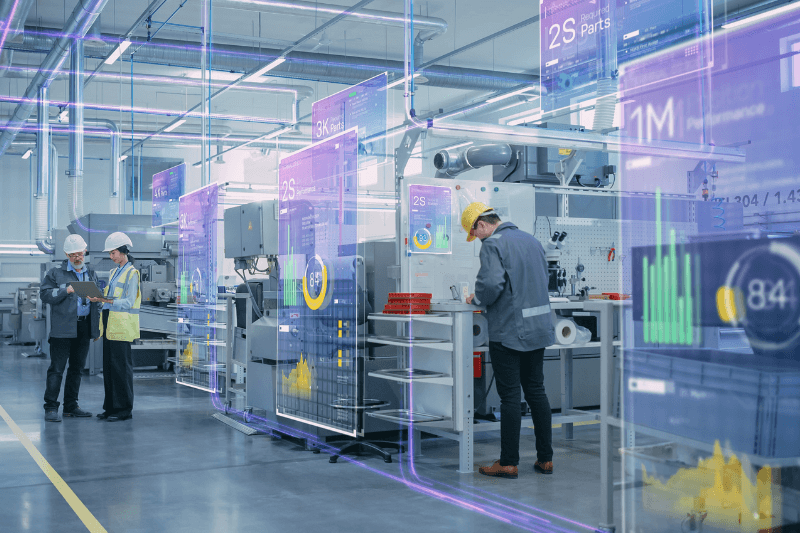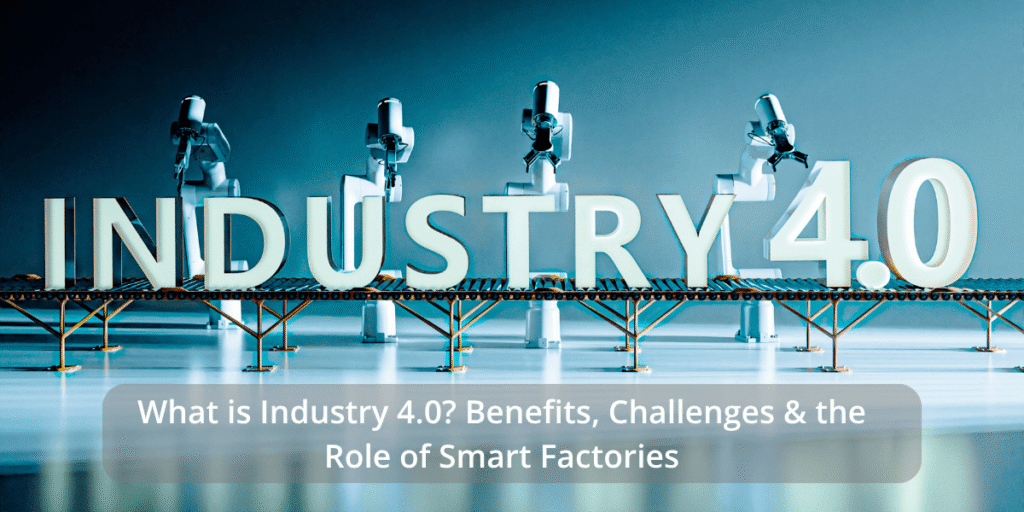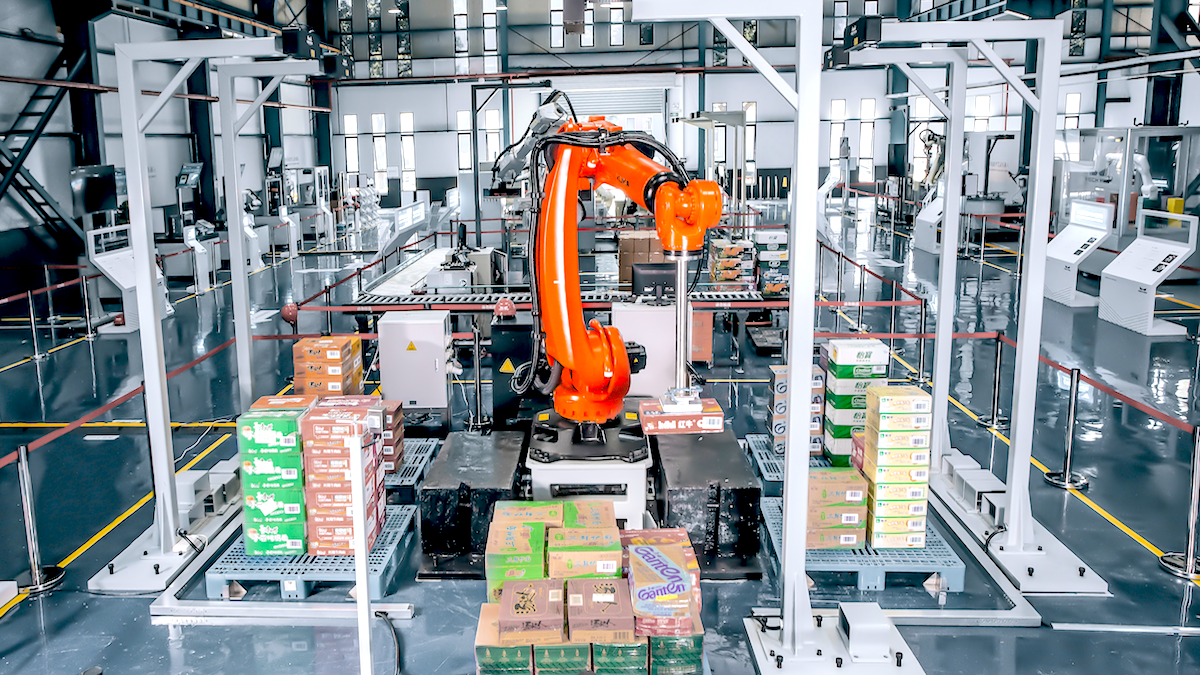Kuwait is stepping boldly into the future of manufacturing by embracing Industry 4.0 technologies. The country’s commitment to digital transformation is reshaping its industrial landscape, paving the way for smarter, faster, and more efficient factories. By integrating advanced technologies like artificial intelligence, the Internet of Things (IoT), and robotics, Kuwait is not just modernizing its factories it is creating a blueprint for sustainable growth and global competitiveness.
The move toward smart factories reflects Kuwait’s broader vision to diversify its economy. Traditionally dependent on oil and gas, the nation recognizes the need for innovation-driven sectors that can provide stability and long-term growth. Smart factories are now central to this transformation, offering a unique opportunity to enhance productivity, reduce costs, and maintain high-quality manufacturing standards.
Understanding Industry 4.0 and Its Importance
Industry 4.0 represents the fourth industrial revolution, a shift characterized by the fusion of physical and digital technologies. It emphasizes automation, data exchange, and real-time decision-making in manufacturing processes. For Kuwait, adopting Industry 4.0 means more than upgrading machines it involves transforming entire production ecosystems.
Smart factories powered by Industry 4.0 are capable of self-monitoring, self-optimizing, and even predicting maintenance needs. This proactive approach minimizes downtime and maximizes efficiency, ensuring that resources are used intelligently. For a nation focused on economic diversification, these technologies offer a competitive edge that positions Kuwait as a leader in the regional manufacturing landscape.
The Role of Artificial Intelligence in Smart Manufacturing
Artificial intelligence is at the heart of Kuwait’s smart factory initiatives. AI algorithms analyze vast amounts of production data to identify inefficiencies, forecast demand, and streamline operations. In practical terms, this means fewer errors, faster production cycles, and better resource allocation.
For example, AI can monitor machinery in real time, alerting operators to potential malfunctions before they become critical. It can also optimize supply chains by predicting when raw materials will be needed, reducing waste, and ensuring timely deliveries. These capabilities not only increase productivity but also create a safer, more reliable workplace for factory employees.

IoT and Connected Devices Driving Efficiency
The Internet of Things (IoT) is another cornerstone of Kuwait’s Industry 4.0 strategy. IoT devices allow machines, sensors, and systems to communicate seamlessly, creating a highly interconnected manufacturing environment. This connectivity enables real-time monitoring of production lines, energy consumption, and equipment health.
By gathering and analyzing data from every corner of the factory, IoT helps managers make informed decisions quickly. It also enables predictive maintenance, ensuring that machines are serviced before they fail, reducing costly downtime. The result is a factory that operates more efficiently, with lower energy consumption and higher output.
Robotics and Automation Transforming Production
Robotics and automation are redefining how factories in Kuwait operate. From assembly lines to packaging, intelligent robots are taking over repetitive and high-risk tasks. This not only increases precision and speed but also allows human workers to focus on creative and strategic roles.
The integration of collaborative robots, or “cobots,” ensures that humans and machines work side by side safely and effectively. These innovations are reducing operational costs while improving product quality, demonstrating that automation can be both human-centric and highly productive.
Smart Factories Enhancing Sustainability
Sustainability is a major benefit of Kuwait’s smart factory approach. By using data-driven insights, factories can optimize energy usage, minimize waste, and implement eco-friendly practices. For a country where environmental concerns are increasingly important, these sustainable manufacturing practices are a step in the right direction.
Smart factories enable more efficient resource allocation, reducing carbon footprints and promoting responsible production. Companies are now able to produce more with less, demonstrating that technological advancement and environmental responsibility can go hand in hand.
Workforce Transformation in the Era of Industry 4.0
As Kuwait adopts smart factories, workforce development becomes essential. The shift toward high-tech manufacturing requires employees to possess new skills, from data analysis to AI programming and robotics operation.
To meet this demand, the country is investing in education and training programs that equip workers with the skills needed for the factories of the future. Upskilling and reskilling initiatives are crucial for ensuring that the workforce can thrive in an increasingly automated and technologically advanced environment.
Benefits of Smart Factories for Kuwait’s Economy
The economic benefits of smart factories are substantial. Enhanced efficiency, reduced production costs, and improved product quality contribute directly to higher profitability for businesses. Additionally, smart factories attract foreign investment, positioning Kuwait as a hub for innovative manufacturing in the region.
Diversification of the economy is a key national goal, and Industry 4.0 technologies play a significant role in achieving it. By building intelligent factories, Kuwait is creating a foundation for sustained economic growth and competitiveness on a global scale.
Challenges and Opportunities Ahead
Despite the promising prospects, Kuwait faces challenges in fully implementing smart factories. High initial investment costs, the need for skilled labor, and cybersecurity concerns are among the main hurdles. However, these challenges also present opportunities for innovation.
Strategic partnerships with technology providers, investment in workforce training, and robust cybersecurity measures can help overcome these obstacles. By addressing these challenges proactively, Kuwait ensures that its transition to Industry 4.0 is smooth, sustainable, and future-ready.

The Roadmap for Continued Innovation
Kuwait’s journey toward smart manufacturing is ongoing. The country is continuously exploring emerging technologies like augmented reality, blockchain, and advanced analytics to further enhance its factories.
The focus remains on creating a manufacturing ecosystem that is agile, resilient, and capable of adapting to global trends. With sustained investment in technology and human capital, Kuwait’s smart factories are poised to become models of innovation and efficiency for the entire region.
Global Impact of Kuwait’s Smart Factory Revolution
Kuwait’s embrace of Industry 4.0 is not just a national endeavor it has global implications. By demonstrating how smart factories can improve productivity, sustainability, and workforce engagement, Kuwait sets an example for other nations seeking to modernize their industrial sectors.
The knowledge, technology, and best practices developed in Kuwaiti factories can influence global manufacturing standards, showing that a small country can lead big changes. Kuwait’s approach highlights the importance of vision, innovation, and collaboration in shaping the future of industry worldwide.
Conclusion
Kuwait’s investment in smart factories reflects a deep commitment to innovation, efficiency, and sustainability. By integrating AI, IoT, robotics, and advanced analytics, the country is transforming its manufacturing sector and diversifying its economy.
Smart factories are not just a technological upgrade they are a pathway to economic resilience, environmental responsibility, and workforce empowerment. As Kuwait continues to embrace Industry 4.0, it stands as a powerful example of how vision, technology, and human ingenuity can converge to create a thriving, modern industrial landscape. The nation’s journey offers inspiration for other countries looking to harness the power of technology to build smarter, more sustainable industries for the future.
Also Read – Smart Artificial Intelligence Innovations Reshaping Kuwait’s Investment Future



